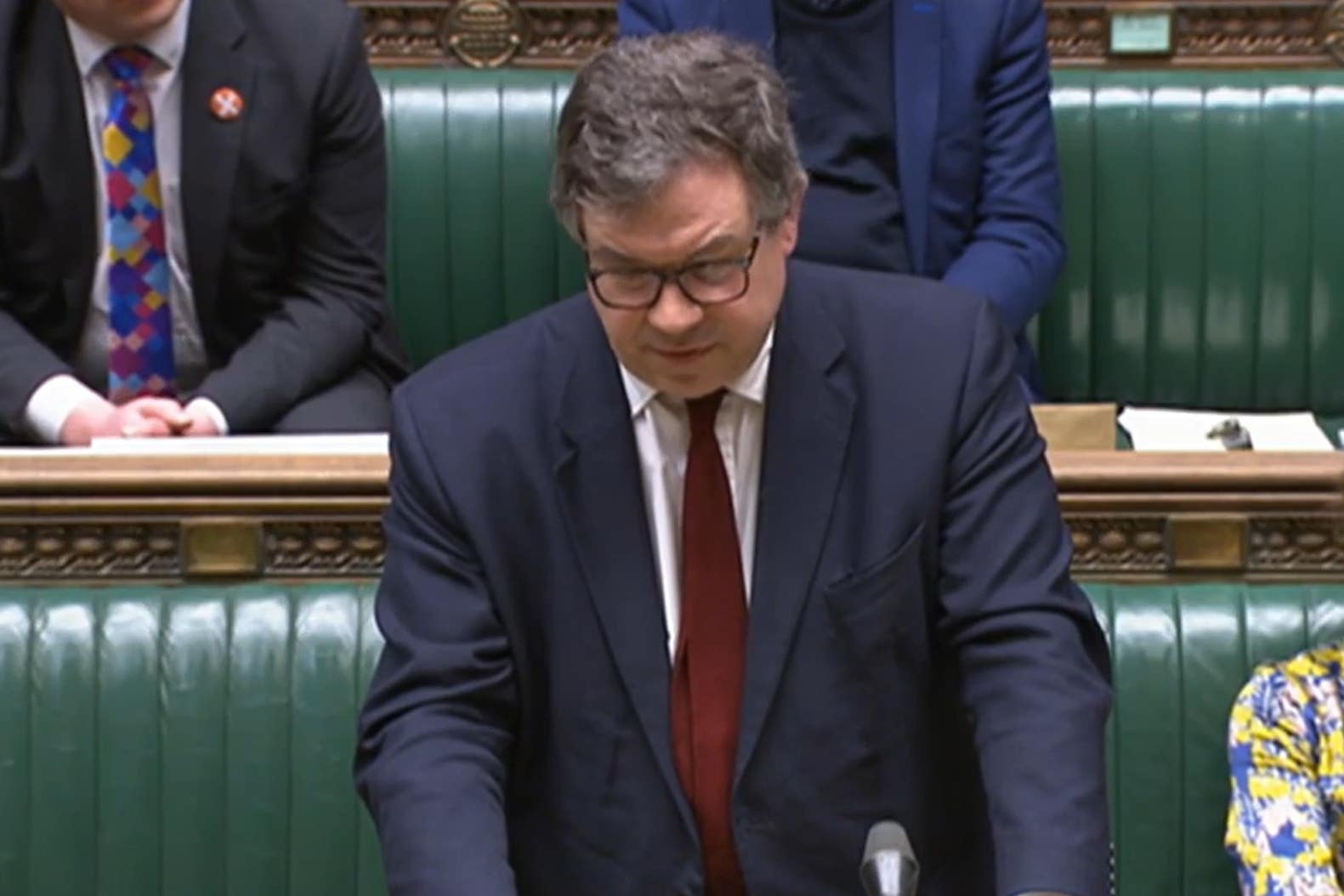Covid inquiry legal challenge could be heard by end of June, says minister
Cabinet Office minister Jeremy Quin said the process was being ‘expedited’ as he defended the decision to bring forward a judicial review.

Your support helps us to tell the story
From reproductive rights to climate change to Big Tech, The Independent is on the ground when the story is developing. Whether it's investigating the financials of Elon Musk's pro-Trump PAC or producing our latest documentary, 'The A Word', which shines a light on the American women fighting for reproductive rights, we know how important it is to parse out the facts from the messaging.
At such a critical moment in US history, we need reporters on the ground. Your donation allows us to keep sending journalists to speak to both sides of the story.
The Independent is trusted by Americans across the entire political spectrum. And unlike many other quality news outlets, we choose not to lock Americans out of our reporting and analysis with paywalls. We believe quality journalism should be available to everyone, paid for by those who can afford it.
Your support makes all the difference.A High Court challenge by the UK Government to block the UK Covid-19 Inquiry’s request for Boris Johnson’s unredacted WhatsApp messages and notebooks could be heard by the end of June, a minister has suggested.
Cabinet Office minister Jeremy Quin said the matter was being “expedited” and that it would likely be heard “on or shortly after” June 30.
He said all Government correspondence relating to the handling of the coronavirus pandemic would be “made transparently available” to Baroness Hallett’s investigation.
But he repeated the Cabinet Office’s earlier argument that the inquiry, in its request for former prime minister Mr Johnson’s unredacted messages and notes, was asking for information it deemed to be “clearly and unambiguously irrelevant”.
Let them have everything they want and let's get to the truth
In a statement in the Commons on Monday, Mr Quin said: “That material includes, for example, communications about purely personal matters and about other aspects of the Government’s policy and work, which have nothing to do with Covid.”
The Cabinet Office confirmed last week it would be applying for a judicial review after missing Lady Hallett’s Thursday deadline for handing over the information.
Mr Quin said he recognised that it was “important that this is resolved in the courts as soon as possible”.
He told MPs: “It is my understanding that the courts have indicated that we can use an expedited process and have a divisional court hearing which is expected to be held on or shortly after June 30.”
Mr Quin’s argument was rebuffed by senior Conservatives, who urged the minister to hand over all documents requested by the inquiry.
Veteran MP Sir Edward Leigh said ministers should “let everything hang out”.
He added: “Let them have what they want and let’s get to the truth.”
William Wragg, Conservative chairman of the Public Administration and Constitutional Affairs Committee, said it was for Lady Hallett, a retired senior judge, to “determine” what was relevant to her inquiry.
Questioning the decision to pursue court action, Mr Wragg said: “There’s no prospect, and it is rather spurious nonsense to hear some ministers witter on about personal information about their children being disclosed.
“That is not the case and nor is it my understanding that any of this material would be subject to freedom of information request.”
Mr Johnson has been at the centre of the row between the Cabinet Office and the national inquiry into the pandemic, which he set up when in Downing Street.
He has vowed to send all his messages to the official investigation directly, circumventing the Cabinet Office.
Mr Quin would not confirm reports that his department had written to Mr Johnson warning him that he could lose public funding for legal advice if he breaks conditions such as releasing evidence without permission.
Asked about the reports by Labour shadow Cabinet Office minister Fleur Anderson – who suggested a judicial review could mount up legal fees costing “hundreds of thousands of pounds in taxpayers’ money” – Mr Quin replied: “There is a long tradition, under all administrations, that ministers should be supported with their legal fees in their support and work to help the inquiries that are established.
“That is the right thing to do.”
Mr Johnson changed phones in May 2021 after security concerns were raised that his mobile phone number had been publicly available for 15 years online.
He was advised to stop using the phone and not to access it again.
The former Tory leader has written to the inquiry to say he hopes to be able to hand over the messages from the locked phone, which are likely to relate to the ordering of three lockdowns in England in 2020.
Lady Hallett is expected to respond to the judicial review decision during a preliminary hearing of her inquiry on Tuesday.